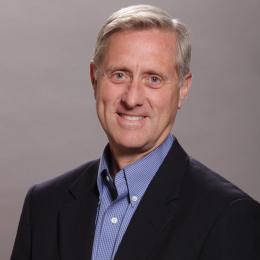
As a child of the 1960s, I watched a regrettably unhealthy volume of commercial television. Even though there were only three major TV networks at the time, I flattened my fanny for countless hours watching Bewitched, I Dream of Genie, Gilligan’s Island, Bonanza, Star Trek, Batman, Superman, Johnny Quest, The Jetsons, The Justice League, Flipper, Underdog, Bullwinkle, Captain Kangaroo, Looney Tunes, M.A.S.H., All in The Family, My Favorite Martian, My Three Sons, Patty Duke, Leave It to Beaver, Green Acres, The Beverly Hillbillies, and, of course, every Sunday night, the Wonderful World of Disney. Looking back now, I wished I had invested my time more productively by learning how to play the piano or some other valuable skill.
One of my favorite shows as a teenager was Kung Fu starring David Carradine — a series that ran from 1972 to 1975. In it, Carradine plays “Kwai Chang,” a Shaolin monk forced to travel to the United States to escape prosecution for killing the Emperor’s nephew in retaliation for the murder of Chang’s beloved mentor and elder, “Master Po.” Each episode chronicles Chang’s adventures as he travels through the old American West armed with only his spiritual training and his skill in martial arts, as he seeks Danny Caine, his half-brother.
It’s been many years since I last watched Kung Fu, but there is one episode that I’ve never forgotten, and provides a dollop of wisdom every corporate executive might find useful. In this show, Chang is a laborer in a mining prison camp comprising men who, like Chang, have been wrongfully sentenced to hard labor by a corrupt sheriff. The prisoners’ misery is further compounded by harsh punishment for any rule infractions or insubordination. Specifically, those unfortunate enough to be caught crossing the line are locked in the “oven” — a small tin hut that is below freezing at night and scorching during the day. Upon entering the prison camp, Chang is warned about the consequences of acting up and witnesses two men drag an unconscious victim from the oven’s confines to be carted away in a wheelbarrow.
A day or two later, Chang gets involved in a physical confrontation with the guards that lands both him and a fellow miner, “Meador,” in the “oven” for an unprecedented four days. That evening, as ice forms on the walls, Chang sits quietly with eyes closed while his cellmate paces, shivering in apparent agony. Observing Chang’s unnatural calm, Meador asks, “Don’t you feel the cold?” to which Chang replies, “Yes.… I am the same as you.” Meador asks Chang how he can just sit there. Chang then tells Meador, “If you can trust me completely, I can help you.” When Meador agrees to accept Chang’s assistance, Chang invites Meador to sit quietly and tells him “You are not in the prison, the prison is in you … Let all effort flow out of our body.” Meador follows Chang’s advice completely and, miraculously, achieves an instant level of self-mastery that permits him to endure the prolonged torture with equanimity.
Four days later, with the entire camp bearing witness, a wheelbarrow is brought to the oven and the door is opened. To everyone’s astonishment, both men walk out under their own power seemingly unaffected by their ordeal.
Professional life in a corporation can be and often is an “oven.” The discomfort it creates may not always be as intense as that experienced by Chang and Meador, but it frequently induces significant mental and physical pain. Internal politics, pressures to perform, unreasonable colleagues and bosses, vexing emails and voicemails, international travel, heavy workloads, long hours, and just plain nasty people often create a work environment that is difficult to bear. Numerous studies have shown that the unrelenting stress associated with office life not only causes significant misery, but it also leads to chronic health problems.
Like prisoners trapped in the “oven,” many of us have no easy means of escape from our employers. And so, we face the same choice as Chang and Meador. We can compound our suffering by allowing daily stresses to cause excessive anxiety or, instead, we can strive to follow Chang’s example by learning to respond to corporate life calmly and with level-headed composure. Although achieving this level of self-regulation and emotional maturity is far easier said than done, its benefits are immense. In addition to reducing your mental misery, actively managing your response to stressful situations at work allows you to think more clearly and make more reasoned judgments. It is also an essential component of effective leadership and vital to your organization’s success.
In his seminal work, A Failure of Nerve: Leadership in the Age of the Quick Fix, Edwin Freedman observes that the “single variable” that distinguishes successful from unsuccessful organizations is the presence of “a well-differentiated leader.” He further explains:
“I want to stress that by well-differentiated leader I do not mean an autocrat who tells others what to do or orders them around, although a leader who defines himself or herself clearly may be perceived that way by those who are not taking responsibility for their own emotional being and destiny. Rather, I mean someone who has clarity about his or her own life goals, and, therefore, someone who is less likely to become lost in the anxious emotional processes swirling about. I mean someone who can be separate while still remaining connected, and therefore can maintain a modifying, non-anxious, and sometimes challenging presence. I mean someone who can manage his or her own reactivity to the automatic reactivity of others, and therefore be able to take stands at the risk of displeasing. It is not as though some leaders can do this and some cannot. No one does this easily, and most leaders, I have learned, can improve their capacity.”
Like Freidman, I believe that each of us — in varying degrees — has the capacity to be “well-differentiated leaders” and maintain an inner calm even in the face of extraordinary stress. Unlike the example set by Meador, there is no instantaneous way to reach this goal. Instead, it is the work of a lifetime. However, if you achieve even a moderate degree of success in increasing your self-mastery, you will not only be able to endure the corporate “oven” with grace, you will maximize your effectiveness as a leader and set an example for all to follow.




